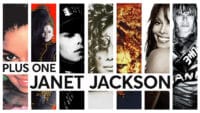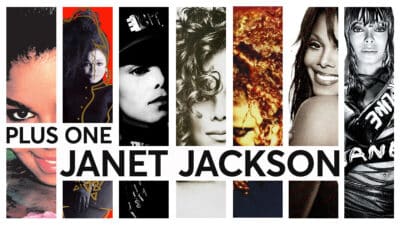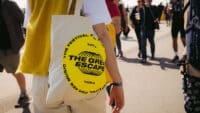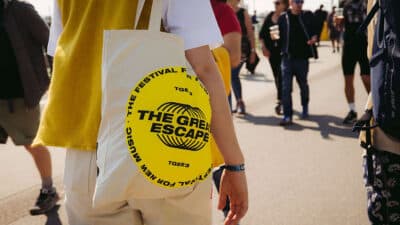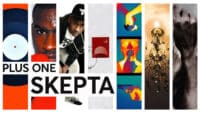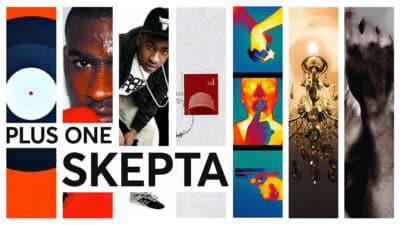Interview
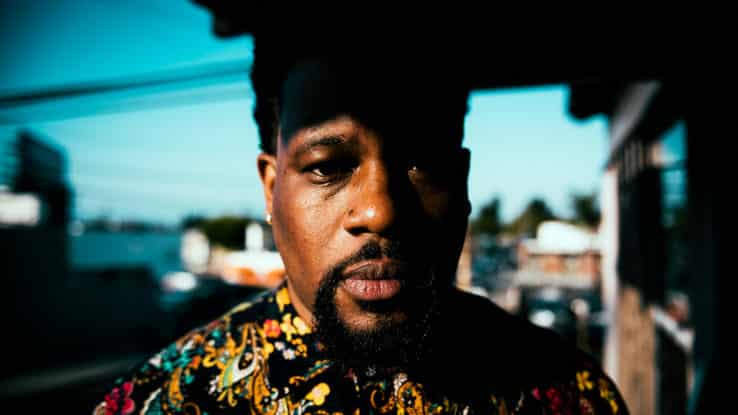
Interview
Open Mike Eagle: “Hip hop is a power fantasy. It’s about stepping into something stronger than you are”
The rapper and comedian on hip hop's crossover with anime, treating his work like therapy, and why he no longer likes the term 'art-rap'
Though writing and releasing an album at the suggestion of your therapist may seem a tall order, that’s exactly the advice that Chicago-born rapper and comedian Open Mike Eagle took on in 2020, focussing pain and self-exploration into the most personal record of his career.
As its name highlights, Anime, Trauma And Divorce is as direct as they come, examining Eagle’s own state of mind with wry humour and adopting his beloved anime art form as a vehicle for escape.
Two years on, Open Mike Eagle is finally able to bring the record to the UK for a small string of headline shows. Ahead of his performance at London’s Jazz Cafe show on Friday, we caught up with him to talk about the therapeutic process of releasing the record, plus how both humour and anime fit into his art and the history of hip hop.
The direction of Anime, Trauma And Divorce changed after your therapist suggested writing about the issues you’d discussed together. Did it help? It must take some getting used to hearing crowds shouting lines like “The Black Mirror episode ruined my marriage” back at you.
You know that is so funny, I have to answer that question a couple of ways. I think in terms of my actual emotion processing, it helped a lot. To be able to work through some of the stuff through the writing of the songs. I gotta say though, almost two years removed now, that releasing it like a rap album, we all have to sell our art, but, I think that particular album, going through the pathways of a commodity, had some tricky backlash from my psyche. I would say that people screaming “The Black Mirror episode ruined my marriage” back to me was the least of it, like that part’s funny, you know? There’s also some weird, dark parts, but the kinda stuff I wouldn’t have been able to wrap my head around until I was in that position.
Could that not apply to all of your releases, or was it just because this was so much more personal?
That’s absolutely why. I would say all my albums have been personal in the sense that they have all been personal statements that I’ve wanted to make, but very rarely was that personal statement about me in such an overt way that left me vulnerable to that degree. I’ve talked about myself a lot but typically it was under the shadow of metaphor and allegory, or pushed into absurdity to the point of being comedic. Although I did that on this album too, the core of it was confronting my personal emotions in a way that I hadn’t done in music that had been released to the public before.
I think a lot of the funny side comes from the directness; I wonder if you wrote any lines but found yourself pencilling a line through them. Or, was the therapy in erasing that line and keeping it?
I feel like with this album more than any other, I ignored my instincts to pull back when things got too vulnerable, because that was the part that was helping me in the emotional process. I made the decision to ride that line all the way through. Whereas on every album I’ve ever released before there have been two or three songs that I’ve taken off because I’d said something that I didn’t know if I wanted to put that out. But this time I decided not to do that, and I felt the difference in that path.
Skits and comedy have a long tradition in hip hop, and you’ve used it throughout you work in different ways. What’s its importance to you as an artist?
I think humour is a central part of how I process life. In life itself and in art, it’s one of the main engines of how my brain works and how my mind inputs the reality of life and tries to process it so I can understand anything and relate to people. I’m always looking for the joke, for the way to reflect reality back at itself that emphasizes or underscores the absurdity of everything. So in some ways I can’t even help it. If I make something that’s too serious for too long I get bored with it, and it’s the same with movies, TV, music that I consume. If it takes itself too seriously it becomes useless to me.
What did it feel like releasing such a personal work in a time when, firstly everyone else had their own stuff going on and were searching for their own therapy, and secondly, you couldn’t get an immediate response to it like you would have done previously? Was that intimidating?
Yes, and this is something I came to understand later on in the process. You put an album out and you see feedback from fans, or not fans, online, you see the feedback from journalists and critics. You see a little feedback from sales and streaming numbers, but the most satisfying and rewarding feedback is always at the live shows. It’s not even just on stage; if people are standing in line for merch and want to meet, they’ll tell me that a song or a line is important to them and their life. That’s really the feedback that moves the needle for me more than anything else. It’s the most tangible. Online people maybe give you too much love or too much hate, you don’t know where it’s coming from or why. There’s a lot of reasons people have to take extreme positions online and hide behind that identity, but when people pay money to come see you and experience music that they enjoy and want to tell me about something that’s moved them, that’s the feedback that makes everything feel worth it, like you actually did something.
I did miss that. I did a small tour after album came out where I was support, and I didn’t want to root my show in the vibe of that album, because I didn’t think that would have been a nice thing to do for the headliners. So I had some of those songs in it but had more of a generally entertaining show, so in that sense I never really got to live in the wake of people’s visceral and emotional response to that album, and I do think that in some ways that has affected my experience of it too.
On the album you worked with producers like Black Milk and Gold Panda, who share a certain aesthetic. What do you look for in a producer?
It’s funny, because I’m at a stage now where I’m not actively looking as much as I have done. I think that even when I was making Anime, Trauma And Divorce, there are people I know who I like what they do, and there’s usually a sense of musicality that’s very important to me. That’s what my ear and my heart tends to attract in terms of songwriting; stuff with enough groove and enough melody to be the perfect canvas to write something that I think is good. I’m sure there’re plenty of people out there who I haven’t heard that are great, but I’m a middle aged man and I’m tired. So the pursuit and the sifting? I don’t really have the energy for that anymore. In that sense, people I have good relationships with and I like what they do, and they like what I do, I like making music in that space.
The album was originally set to be based purely around anime, which is of course a huge global sub culture, but there’re bound to be legions of hip hop fans that aren’t familiar with it. How have you navigated that balance to not exclude listeners over the years?
I never wanted to make a song that depended heavily on a person being completely familiar with a piece of anime. I have the Joestar [from JoJo’s Bizarre Adventure] one on there and that’s probably the one that requires the most knowledge. But I set that song up not as a celebration of JoJo as much as me outlining one of the ways I wanted to escape what I was dealing with, by taking on powers from something I was watching. So for me the key isn’t understanding exactly what I was referencing, but understanding what I was referencing was the vehicle for me to escape the troubles of my life. So with all the anime on the album, I tried to make it less about that work and how my relationship with it fell into the story I was trying to tell about what I was dealing with.
That said, there’s of course a historic crossover between anime and hip hop, most famously with Wu Tang Clan. Why do you think these art forms go hand in hand?
I think there’s a basic, exciting thing about power fantasy. If you look at it, the most popular anime is shōnen, which is power fantasy: Naruto, Dragon Ball Z, Attack On Titan, Bleach, JoJo, they’re all shōnen. A lot of what these shows are about is becoming powerful. They usually follow a main character who, at the beginning of the story feels really weak, but they ultimately gain the power to defeat the world or the universe. There’s something basically relatable about that, because I think it connects cleanly to the ‘hero’s journey’ that’s been inspiring humans as long as we’ve had oral tradition; the story of the lost being becoming stronger and powerful enough to defeat whatever forces are in the way. It’s Star Wars, it’s Harry Potter. And I think the way that anime does the hero’s journey is in a very protracted, step-by-step way, and I think that’s the brilliance of it; you take a story arc that could be a movie but you stretch it out over ten seasons. It really gives you something to sink your teeth into, you’re wanting to feel that sense of power or hope that you can get from watching someone overcome.
Hip hop is a genre that in and of itself is a vehicle of overcoming. It’s people from a bad situation; I ain’t even talking metaphorically. Literally, it was created by poor people who repurposed stuff around them to find something to do, to find something to build their identities around and to make their stamp on their neighbourhood and ultimately ended up making a stamp on the world. Ultimately I think hip hop, and how many people have engaged with it over time is this same kind of power fantasy. It’s about stepping into something stronger than you are, stepping into an alter ego or a hidden identity to become something more than what you were perceived as when you were by yourself.
In a way, the title of the album also felt like a kind of wry nod to ‘art-rap’, which you’re often described as and something you addressed unapologetically 12 years ago. Do you still like that phrase?
Nope. I don’t like using it at all anymore. It’s funny, I’m making music right now and I just addressed that in a song that I wrote. I did think at the time that that term was very necessary, because one of the main things you have to do, especially if you’re an independent artist and you’re doing sh*t that not everybody does, you have to come up with a way that contextualises it to help people understand it. I say that chiefly if you’re interested in trying to sell it, because then you kind of have to have that capability. Me using that term was an effort to contextualise what I was doing, what Serengeti was doing, what Shabazz Palaces was doing, in a time when what we were doing was so very far removed from what was going on in mainstream rap. It was night and fking day. So my dream was having a bin at the record store in the rap section that was for ‘art rap’ that our stuff could go in to, just like there’s ‘art rock’.
But I think since then the mainstream has changed so much, it’s become so creative. There’s still a lot of toxicity in it, but the freedom on that level is higher than it’s ever been, and so there’s no longer as much of a need to distinguish. I think that in the wake of that, people put the term art-rap on damn near anything now. It’s become a catch-all in a way that to me in some ways defeats the purpose of trying to use it in the first place. I don’t want it to be used because people are too lazy to actually wanna describe what something is — that runs counter to the purpose.
Though the album dealt with some heavy topics, it must have added such joy to get your son Asa involved on a couple tracks, right? How engaged is he with your work?
He’s a lot less now than he was back then, that’s for sure. He’s thirteen now, so he’s doing his own thing and has got his own interests and musical tastes. He’s actually listening to pretty much exclusively UK drill, right now. I can tell by the way he’s engaging with it it’s gonna be big here.
Open Mike Eagle performs at London’s Jazz Cafe on 02 April and Whelans, Dublin on 10 April. Limited tickets are available here.




